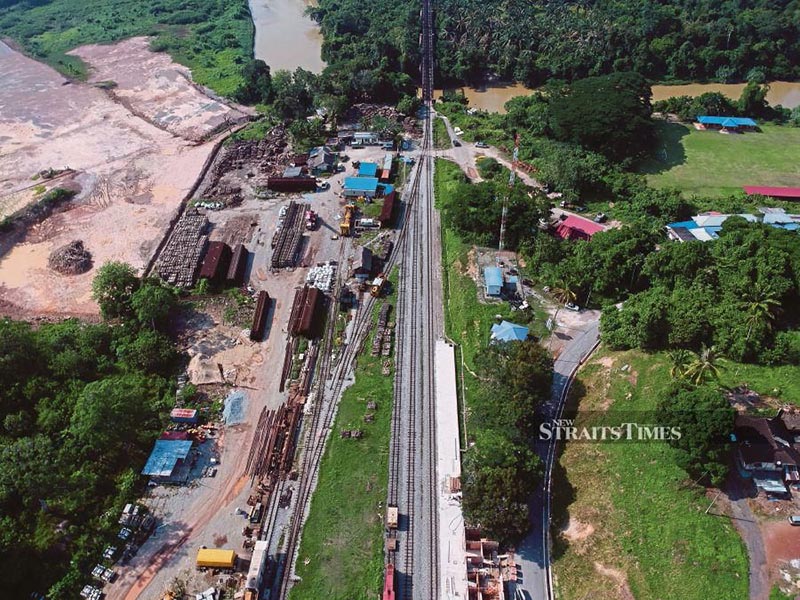Experts optimistic about East Coast Rail Link project in Malaysia

(File pix) An aerial view of the Mentakab railway station in Pahang. The East Coast Rail Link project is set to be the backbone of the development of Kelantan, Terengganu, Pahang and Negri Sembilan. Pix by NSTP/Farizul Hafiz Awang
KUALA LUMPUR, Apr 17, 2019, NST. Members of academia have welcomed the move by the government to resume the East Coast Rail Link (ECRL) project. They reckon the reduction of RM21.5 billion from the original cost of RM65.5 billion will help reduce the government’s burden while boosting the country’s economy, reported the New Straits Times.
According to Prof Dr Amiruddin Ismail, from Smart and Sustainable Township Research Centre (SUTRA), Department of Civil & Structural Engineering, Universiti Kebangsaan Malaysia, the ECRL project would open up new areas for potential developments along the new route.
“The new routes — Mentakab, Jelebu and Kuala Kelawang — are a godsend for people in the areas, in terms of job opportunities in the construction sector, for example. New small businesses can grow, and tourism can flourish.
The economic benefits for the people are huge. It is up to them to seize the opportunities,” he added.
Amiruddin hopes the government would do a proper Environmental Impact Assessment (EIA) of the routes to avoid a negative impact.
“I am happy that they can save money by not doing the tunnels, but they must also ensure that the environment along the new ECRL routes is not damaged,” he added.
Economic expert Professor Dr Barjoyai Bardai welcomed the resumption of the ECRL project as it would have a huge impact on the local economy.
He said the ECRL would be the backbone for the development of Kelantan, Terengganu, Pahang and Negri Sembilan.
“These states will receive a lot of economic benefits as it will make transportation of goods easier between the two coasts.
Travel time will be reduced, which means products can reach their destinations faster and companies can increase their volume of shipments, too.
“The ports on the east and west coasts will also be connected, which means faster transportation of goods and materials between both regions. Ships no longer need to travel all the way to Singapore. This will cut costs for companies in terms of travel and time,” he added.
Barjoyai said the project resumption means a more positive improvement in bilateral relations between Malaysia and China.
“China is a huge economy and in the current trading climate, we need to foster a good relationship with them. With the ECRL resumption, we are actually building a strong business relationship with China, and this will have a huge economic impact to our country.
“China is on a huge mission to broaden its economic reach through its Belt and Road initiative. The ECRL project will help China connect with other economies via land transportation. This is a long-term project that will bring long-term benefits to Malaysia,” he added.
Political and economic analyst Professor Hoo Ke Ping believes that the ECRL project would have a positive impact.
Nevertheless, he questioned the decision to remove Gombak as a transit point.
“The ECRL is good but I wished they had maintained the location of Gombak. Many people from the east coast reside in Gombak and the surrounding areas in Klang Valley. Gombak is also also easily accessible for people living in and around the valley.
“Now, people who want to go to the east coast will have to travel outside of Kuala Lumpur to get on a train to the east coast. I feel this is like an unnecessary inconvenience,” he added.